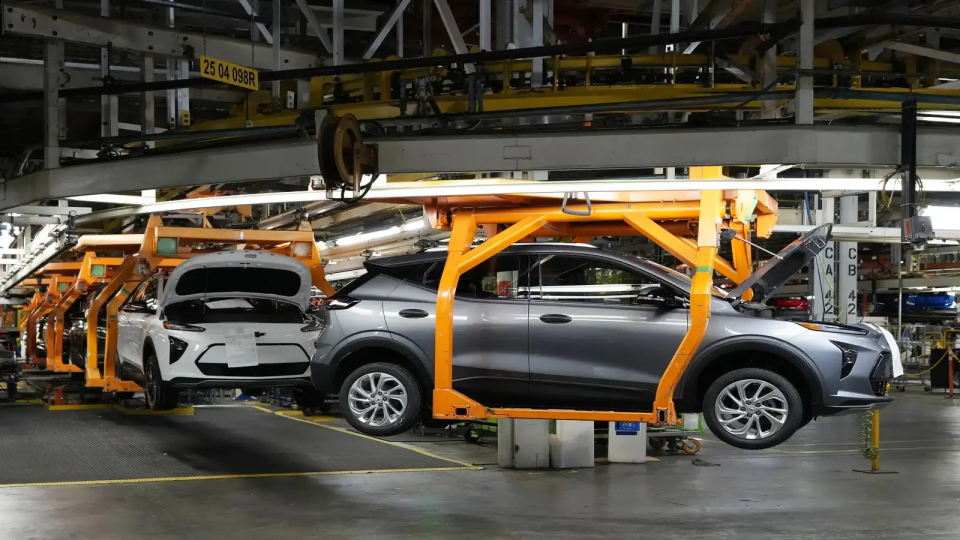General Motors (NYSE: GM) is making a significant move to bolster its U.S. manufacturing footprint, announcing a $4 billion investment that will reshape its production strategy and bring more jobs back to American soil. This decision comes as trade talks between the Trump administration and Mexican officials remain stagnant and new tariffs on imported vehicles and auto parts have already started to bite.
The centerpiece of GM’s plan is the addition of assembly for the gas-powered Chevrolet Blazer and Chevrolet Equinox, two popular models currently built in Mexico, to two U.S. plants. This shift means that American workers will soon be building these in-demand SUVs, a change that is likely to be welcomed by both the workforce and policymakers who have long pushed for more domestic auto production.
But GM isn’t stopping there. The company also revealed plans to convert a large, idled plant in Michigan, which was previously slated to build all-electric trucks, to instead manufacture gas-powered SUVs and trucks starting in 2027. This pivot reflects GM’s response to current market demands and the evolving regulatory environment, as well as the immediate need to adapt to the impact of tariffs on imported vehicles and parts.
The $4 billion investment will be distributed across several American plants, with the goal of enhancing capacity, securing jobs, and strengthening GM’s position in the U.S. market. While the company hasn’t provided specific numbers on job creation, the move is expected to have a positive effect on employment in the regions where the plants are located.
For GM, this strategy is about more than just responding to tariffs or stalled trade talks. By bringing production of the Blazer and Equinox home and repurposing a Michigan facility, the company is positioning itself to be more resilient in the face of global supply chain challenges. It’s also a clear signal that GM is listening to both consumer preferences and political pressures that favor American-made vehicles.
The broader automotive industry will be watching closely. GM’s decision to shift production and invest heavily in U.S. plants could prompt other automakers to reconsider their own manufacturing strategies, especially as tariffs and trade uncertainties continue to shape the business landscape.
From a political standpoint, the Trump administration is likely to view GM’s announcement as a win for its trade and economic policies. The move aligns with efforts to boost American manufacturing and reduce reliance on imports, particularly from Mexico. For GM, this investment could help build goodwill with policymakers and consumers alike and potentially ease some regulatory hurdles in the future.
Investors will also be paying attention. While the upfront cost is substantial, the long-term benefits of a more localized and flexible supply chain could help GM weather future disruptions and maintain its competitive edge in the U.S. market.
GM’s $4 billion commitment is more than just a headline-grabbing figure. It’s a strategic shift that reflects the realities of today’s auto industry, where flexibility, domestic production, and responsiveness to both market and political forces are more important than ever. As GM brings more Chevrolet production back to the U.S. and retools its Michigan plant for future SUV and truck demand, the company is making a clear bet on the enduring strength of American manufacturing.

